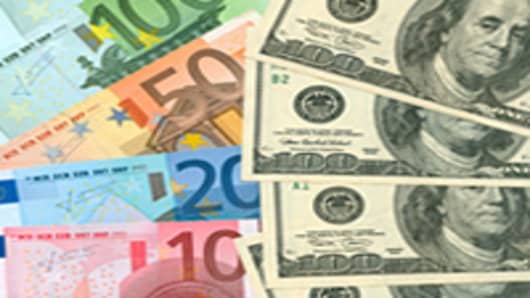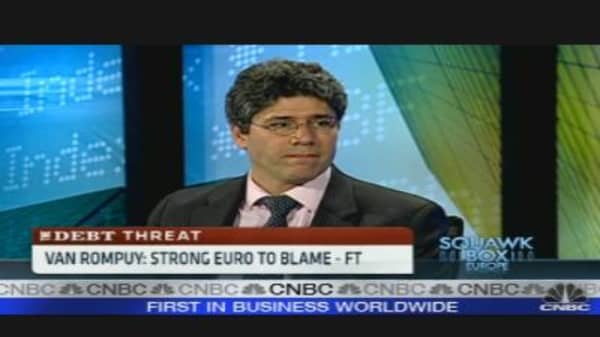Once the issue of contagion from the Greek crisis is resolved, the euro zone will be out of the woods, in Bloom's opinion.
He admitted that his prediction regarding the euro's move was wrong.
"I missed this move, I can't pretend my forecast was $1.20, I started the year with $1.45." He said he then downgraded it to $1.35, which was still too high."I've been wrong," Bloom said.
- Watch the first section of David Bloom's interview above and the second part here >>>.
However, he does not predict the disappearance of the single European currency. The dollar is still the reserve currency but investors want to diversify, he explained.
"At the end of the day, it's about reserve diversification, that will continue," Bloom said.
"I think this Anglo-Saxon dream that the euro will disappear is pure fantasy," he added.
Last year investors didn't want dollars, the year before they didn't want the pound and now they don't want the euro, Bloom pointed out.
"It's not that I have faith in a single currency, it's just that I don't have faith in any others," he said. "It's a rotating market and you cannot fall in love with any currency because they will fall out of favor."




